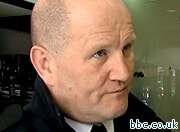A senior police officer has called for the decriminalisation of Class A drugs and for the NHS to be able to give them out to addicts.
Mike Barton, Chief Constable of Durham Constabulary, has been criticised by commentators and researchers who say such a move would encourage rather than discourage drug tourism and gangland crime.
Writing in The Observer Mr Barton said addiction to anything is “not a good thing, but outright prohibition just hands revenue streams to villains”.
Simple
But Kathy Gyngell, of the Centre for Policy Studies, said the solution to the problem of drugs crime is not so “seductively simple”.
She said Mr Barton is “at the coalface of a drugs policy regime that is paying a high price for its liberality”.
And she notes that the NHS is already spending “£1 billion a year supplying the Class A synthetic opiate methadone to 150,000 addicts”.
Demand
She said: “The legal supply of heroin would no more undercut illicit demand than sate addicts’ desire.
“It would encourage drug tourism, black-market dealing (by adding to the supply) and the gangland crime that Mr Barton wants to escape. Supply without sanction feeds demand, which in turn feeds rates of use and, inevitably, harm.”
Mike Barton said in his article that offering an alternative route of supply to users “cuts off the gang’s income stream”.
Illegal
He also said: “If an addict were able to access drugs via the NHS or some similar organisation, then they would not have to go out and buy illegal drugs.”
Mr Barton’s comments came just before a study was published in the online journal BMJ Open which says trying to control the global illegal drugs market through law enforcement isn’t working.
The report, co-authored by the scientific chair of the International Centre for Science in Drug Policy, looked at statistics from seven international government-funded drug surveillance systems and concluded that the “war on drugs has failed”.
Ills
Commentator Peter Hitchens said in a letter to The Independent that “informal decriminalisation of drugs has been under way in this country for more than 40 years, and many of the ills that we now see are the results of that”.
Daily Mail columnist Peter McKay said criminal gangs “deprived of revenue from drugs” will simply “find another illegal – and possibly more antisocial – source of income”.
Andy Bliss, the lead on drug policy for the Association of Chief Police Officers said in response to Mr Barton’s comments, “We need in particular to be very thoughtful about setting clear boundaries”.
Dynamic
He added: “We also need to take account of the fact that illicit drugs markets are dynamic and the wider issue is not just about class A drugs. Issues like cannabis farms and new psychoactive drugs also create social harms and attract organised criminality.”
When cannabis was downgraded from a Class B drug to a Class C drug in 2004, over the next three years the number of cannabis addicts receiving NHS treatment doubled.
The reclassification was also accompanied by a surge in the number of children aged 15 and under being treated for mental illness.
Faced with such overwhelming evidence, the Labour Government restored cannabis to a Class B drug in January 2009.

